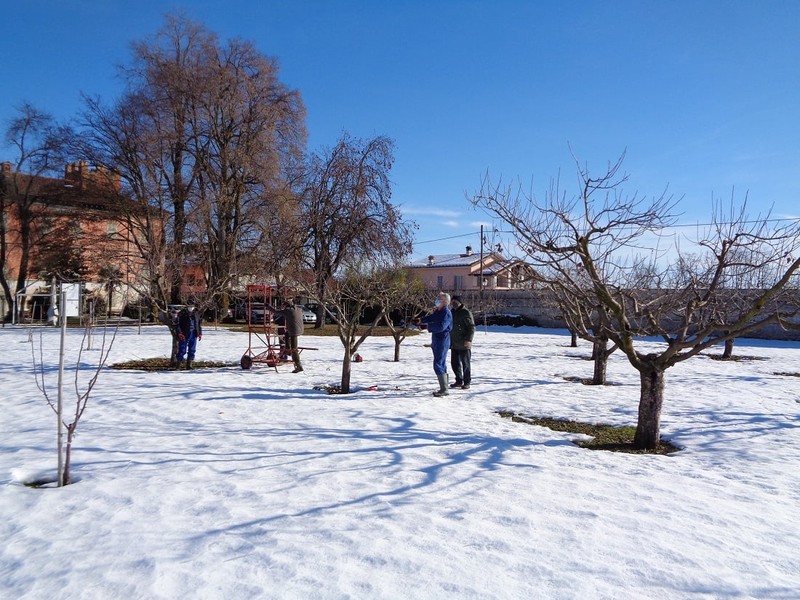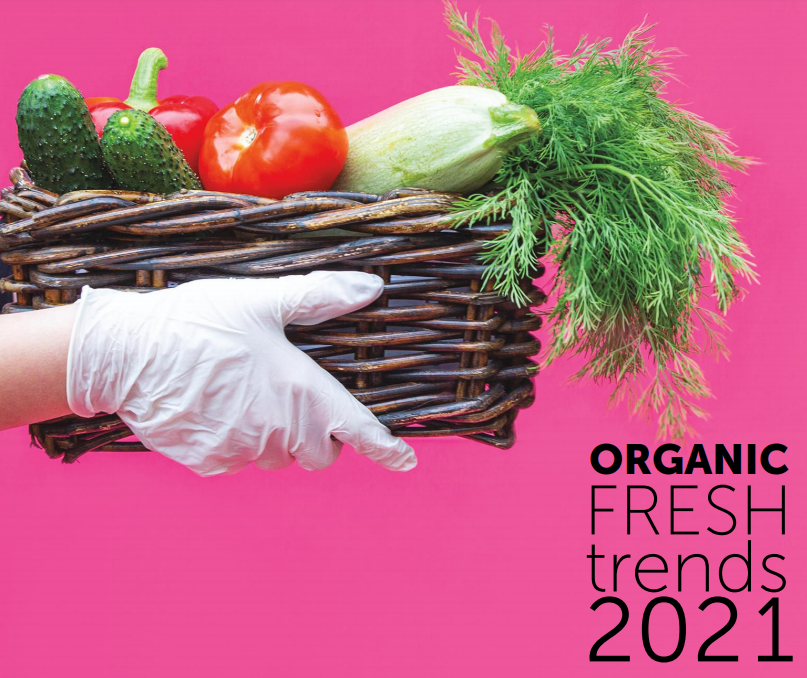The popular German TV programme MarktCheck recently broadcast an investigation to shed light on the background of a market that brings blueberries to supermarket shelves at prices of 1€ per 100g. What is behind these prices? Theinvestigation takes stock of labour costs, the pesticide risk and the impact on German farmers.
Voice-over: blueberries is in fashion. All year round and often on the other side of the world. But how healthy are they? Experts criticise the fact that the limits for pesticides are too high.
Lars Neumeister (pesticide expert): These maximum limits are really so high that everything is marketable.
German fruit growers suffer from cheap imports.
Franz Josef Müller (fruit grower): Peru, the minimum wage is also only one euro and we cannot produce like that.
What to look out for when buying blueberries: today on 'Marktcheck'.
Journalist: Hello, good evening. You have probably already noticed, haven't you? The many blueberries that are available lately at very, very low prices in supermarkets and discount stores. Actually, there are two hearts beating in my chest: one is happy because I love blueberries. But the other is wondering: how can they be so cheap? Where do they come from? And are the berries contaminated?
They are on sale every week, almost everywhere. The blueberries are on sale for less than one euro per 100 grams . And this despite the fact that they are not in season. Even consumers in Offenburg like to buy them.
Passer 1: I love them in smoothies, in muesli, in salads. I like to make salads with fruit.
Passer 2: So always with my breakfast, with oatmeal, oat milk and banana mix, it tastes good.
Passer 3: For once, the other day I bought blueberries for a cake, but otherwise I don't buy them when they are not in season.
But somewhere it is always in season. Currently, blueberries mostly come from Spain or Morocco. Throughout the winter they come from Chile or Peru. In the middle of the Peruvian desert: huge plantations of blueberries. Here the soil is almost non-existent, almost only sand. That is why the blueberry plants are in bags of humus. Irrigated by meltwater from the mountains. The season here is almost all year round. The resulting berries are usually available in German supermarkets from autumn to spring.
Fred Eickhorst (Asparagus and Berry Growers Association): When I go shopping, the first thing I come across is the stall where blueberries is offered for twelve months of the year, coming from 13,000 kilometres away with a very bad CO2 footprint.
Imports have increased massively in recent years. Berries from abroad are invading German supermarkets at ever lower prices. The journey by ship from Chile or Peru to Germany takes at least three weeks. During the process, the berries are often treated with fungal poisons, because despite refrigeration, the risk of mould is high. The cheap berries are not exactly climate-friendly. In Oberkirch, in the Black Forest, Franz Josef Müller tries to keep up with foreign competition. For about 20 years, the fruit grower has also been cultivating blueberries (under foil). They are still green and small. The ever-lower prices of imported berries are a problem for him.
Franz Josef Müller: 'Most of our competitors come from Spain, Portugal and Peru. And there we have Peru, of course, the minimum wage of even one euro. And of course we have a problem, we cannot produce that way.
In recent years, the demand for fresh blueberries has really exploded. However, German growers are having problems getting rid of their produce.
Franz Josef Müller: It makes my skin crawl when we have good products because food retailers don't buy them from us and leave our products to get them elsewhere cheaply.
The pressure on supermarket prices has increased in recent years. The wages that Franz Josef Müller and other German blueberries growers have to pay for manual harvesting are increasing.
Fred Eickhorst: We have the best social standards, we pay the highest wages, and because we can compete with foreign countries with worse conditions, worse quality, worse social standards (from October we will pay twelve euros minimum wage), our farms cannot compete and produce.
In Peru or Chile, millions of blueberries plants have brought work to thousands of people and money to arid regions. But this is not without consequences: melt water has to be diverted for cultivation and dams have to be built. And what about pesticide contamination? Do they comply with European guidelines? We want to know and buy in various supermarkets and discount stores: blueberries from Morocco and Spain, organic berries from Spain and Chile, and frozen products. In this case, it is not even necessary to indicate the origin of the fruit.
We have the berries analysed for pesticide residues in an accredited laboratory. We want to know how contaminated the fruit is. It will take a week before the test results are available. We go back to the grower of blueberries Franz Josef Müller in Oberkirch. He is trying to challenge the competition by bringing his German blueberries to market as soon as possible.
Franz Josef Müller: These are blueberries and are of the Duke variety, they arrive very early and in protected cultivation it is important that they arrive early, the market is not yet overcrowded. If the quantity increases, regardless of the EU country, and then presses on the German market, the prices go down.
With this variety it can also extend the season and offer its German berries for longer. We meet pesticide expert Lars Neumeister, because in the meantime the lab results have arrived. He puts them under the microscope for us.
Lars Neumeister: No substances have been used that have not been approved in the EU, so not even in Morocco or Chile. They are all approved in the EU, there is no import of substances that have not been approved in some way.
Although insecticides or fungicides were detected in most of the samples, in some up to six different active substances, the values were well below the maximum permitted amounts.
Lars Neumeister: Again, the maximum quantities, the legal maximum quantities, are really, really high in some cases. So here we have substances with 20 milligrams per hectare allowed, yes, and if you then only find 0.2, then it seems very little compared to the legal limit.
But of course this is partly done on purpose. Yes, these upper limits are really so high that everything is marketable . They are therefore not a benchmark for special quality. It is as if you raised the speed limit to 200 and nobody got caught for speeding anymore.
Organic berries scored best. The presence of pesticides could not be detected.
Lars Neumeister: That's how it should be. And this is confirmed every year by reports from the authorities.
The situation regarding the use of pesticides has improved considerably over the last ten years, says Lars Neumeister. Also abroad. For the grower of blueberries Franz Josef Müller, tunnel construction not only has the advantage of ripening the fruit earlier, but also of using less pesticide. If the pressure from imported berries continues to grow, at some point the growers of blueberries might decrease and Germany's fruit and vegetable supply might be endangered, he fears.
Franz Josef Müller: Well, we have 20-30% fruit and vegetables, apples are 60%, so there is insufficient supply. If the politicians don't react and continue like this, we will havefewer and fewer farms and therefore the degree of self-sufficiency will be less. And then we will be dependent. As for energy, we will be dependent on Russia, and that cannot be. It must not be like that.
Farmer Franz Josef Müller is waiting for his fruit to finally ripen. He does not yet know how much he will get in return. It depends on how many berries are on the market and at what price. The price problem for German farmers has not yet been solved. According to farmer Müller, at some point there may only be a few blueberries growers left in the country.
This development of blueberries is supported by the statistics of the Federal Ministry of Food and Agriculture: the self-sufficiency rate of blueberries decreased by 3% last year. And this was already low - from 15% (2019/2020) to 12% (2020/2021).














